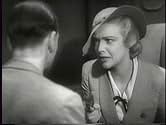Nachdem drei britische Agenten während des Ersten Weltkriegs mit der Ermordung eines geheimnisvollen deutschen Spions beauftragt wurden, bekommen zwei von ihnen Skrupel, als ihre Pflicht geg... Alles lesenNachdem drei britische Agenten während des Ersten Weltkriegs mit der Ermordung eines geheimnisvollen deutschen Spions beauftragt wurden, bekommen zwei von ihnen Skrupel, als ihre Pflicht gegenüber der Mission in Konflikt mit ihrem Gewissen gerät.Nachdem drei britische Agenten während des Ersten Weltkriegs mit der Ermordung eines geheimnisvollen deutschen Spions beauftragt wurden, bekommen zwei von ihnen Skrupel, als ihre Pflicht gegenüber der Mission in Konflikt mit ihrem Gewissen gerät.
- Auszeichnungen
- 4 wins total
- Minor Role
- (Nicht genannt)
- Bit Part
- (Nicht genannt)
- Col. Anderson
- (Nicht genannt)
- Manager
- (Nicht genannt)
- Karl
- (Nicht genannt)
- Army Officer
- (Nicht genannt)
- Army Captain
- (Nicht genannt)
- Coachman
- (Nicht genannt)
Empfohlene Bewertungen
Curtis Stotlar
John Gielgud plays Ashenden, an English spy in World War I. He is assigned to go to Switzerland, determine the identity of an important German agent, and then stop the enemy agent before he can carry out his mission. Gielgud has two assistants: a young agent posing as his wife (Madeleine Carroll) and an eccentric assassin (Peter Lorre). What makes the film interesting is that Gielgud's character is not at all the stereotyped dashing movie spy, and he has a keen sense of the human cost involved in what he is doing. By contrast, his two assistants are both excited about the mission, and look forward to the game of tracking down and eliminating their quarry. As the story proceeds, it is the reluctant but responsible Ashenden who persists in continuing the mission in spite of some bad surprises, while the once enthusiastic "Mrs. Ashenden" quickly begins to lose heart when she realizes what espionage is really all about. At the same time, the twists and turns of the mission itself lead to some interesting and tense developments. This is all handled with Hitchcock's usual mastery of suspense and irony.
Hitchcock also makes full use of the setting, and typical Swiss themes like mountain climbing, chocolate, and folk dancing are all part of the plot. Hitchcock makes use of these elements in a natural way, not forcing them into the plot, and the whole production is nicely crafted. There are some excellent scenes, including a scene in an old country church that combines humor and suspense, and a chase through a chocolate factory.
Because its hero has a reluctance about his mission that we do not expect in our spy heroes, "Secret Agent" has never been one of Hitchcock's most popular films. And the story does have some odd aspects to it. But this is quite a good film, worthy of attention, and one that shows many aspects of the great director's skill and imagination.
Like the other spy movies he did, (Take Torn Curtain and Topaz for instance, two of his later works. How much later? Nearly 40 years later), Secret Agent is a spy movie without lots of explosions or car chases or shootouts. Instead it is about a man who goes undercover to break up a potentially disastrous international agenda of some kind, and along the way falls in love with his partner and realizes that he's not up to the task of murdering someone.
This 1936 movie is another in Hitchcock's decade-long run of British talkies: highly-contrasted black and white, under 90 minutes generally, and devoid of major stars (except for Peter Lorre, who appears in this movie two years after he did The Man Who Knew Too Much).
But unlike many of the movies surrounding it (Young and Innocent, The 39 Steps), this one isn't quite as good. Not that Secret Agent is a bad movie, far from it:
The directing is fine, and the church-murder scene is a beautiful mix of sound and picture. Lorre is much like the male version of Bette Davis - overacting and proud of it. His role as the womanizing yet clever "General" is much lighter than his usual horror-laced stuff, and he still pulls it off with ease. The leads are equally good. And the humor laced throughout is genuinely funny. (Note that, even in 1936, it is obvious that Hitchcock was already looking for the actress that would be fulfilled in Grace Kelly - the strong, feisty, beautiful blonde leading lady.)
But there's nothing here to just make the jaw drop and the eyes widen. It is a good movie, and from a director that has had whole decades worth of *great* movies, it just seems subpar. A previous commentor was right: This was the movie for Hitchcock to remake in the 1950s (with color and Cary Grant and Grace Kelly - heck, maybe even a minor role for Jimmy Stewart), not The Man Who Knew Too Much, which was one of his best British films.
Overall, it is good and worth the watch - especially for Hitchcock fans, but it's just not quite *there*.
7/10
Wusstest du schon
- WissenswertesSir Alfred Hitchcock convinced Sir John Gielgud to play the lead by describing the hero as a modern-day Hamlet. Gielgud, however, ended up hating that his character was an enigma.
- PatzerAlthough the film is set in 1916, fashion, hairstyles and set decoration are contemporary to 1936.
- Zitate
Mrs. Caypor: Do you understand German, Mr. Marvin?
Robert Marvin: Not a word -- but I speak it fluently.
- VerbindungenFeatured in Alfred Hitchcock: More Than Just a Profile (2005)
Top-Auswahl
Details
- Erscheinungsdatum
- Herkunftsland
- Sprachen
- Auch bekannt als
- Secret Agent
- Drehorte
- Produktionsfirma
- Weitere beteiligte Unternehmen bei IMDbPro anzeigen
Box Office
- Weltweiter Bruttoertrag
- 605 $
- Laufzeit1 Stunde 26 Minuten
- Farbe
- Seitenverhältnis
- 1.37 : 1




































